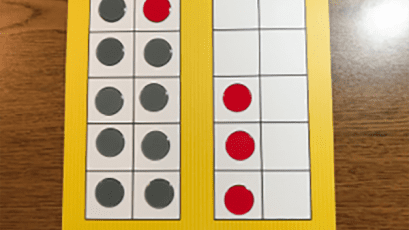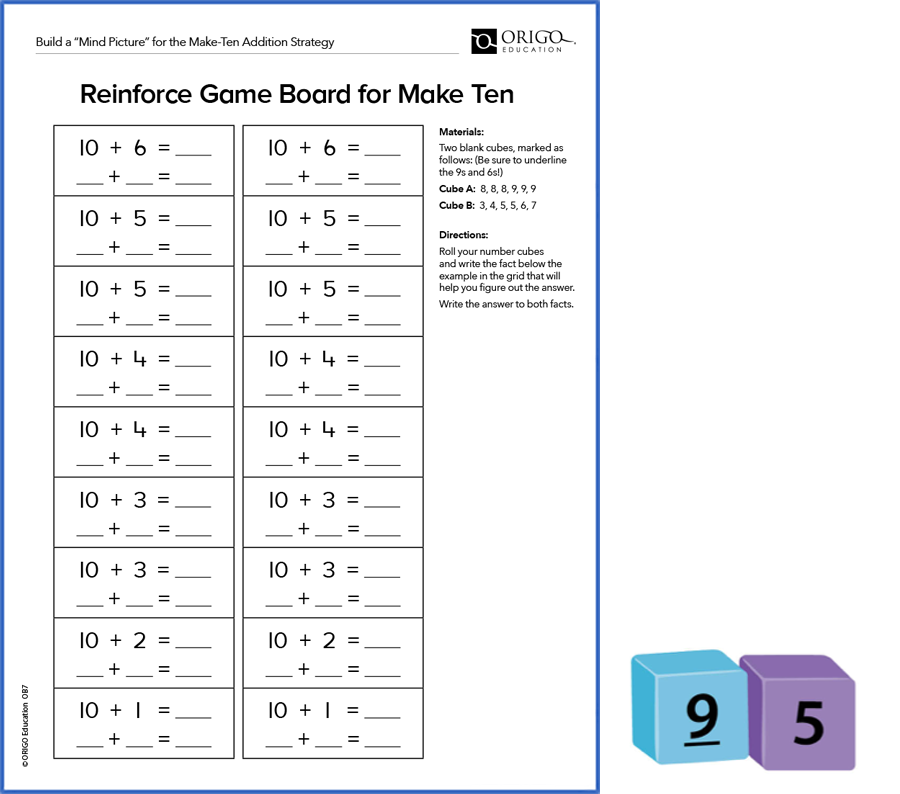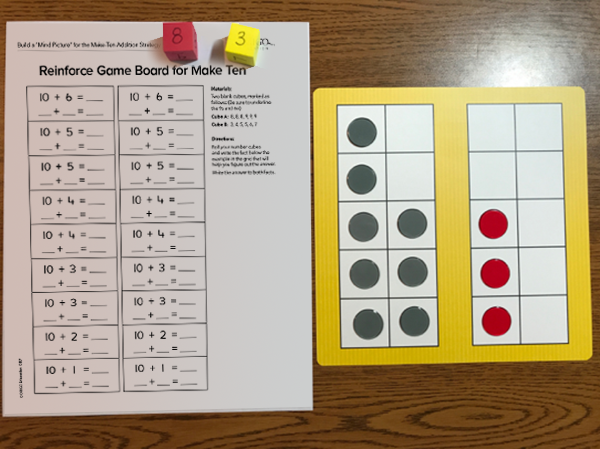Addition and Subtraction
Make-Ten Strategy: Building a “Mind Picture” for the Make-Ten Addition Strategy
Why Is the Making 10 Strategy Great for Addition?
The make-ten strategy is great for addition! It helps students understand place value and the relationships between numbers. Ten-frames help students develop a good “mind picture” for the make-ten strategy because our place-value system is based on making groups of ten. These mind pictures help many kids to do mental math with ease. They are especially important for students who need additional support.
Introducing the Strategy
Use a double ten-frame with counters to represent a number fact such as 9 + 4. Have students fill the first ten-frame with 9 counters and the second ten-frame with 4. STRATEGY TIP: Always fill the left column of a ten-frame first, then fill out the right column.
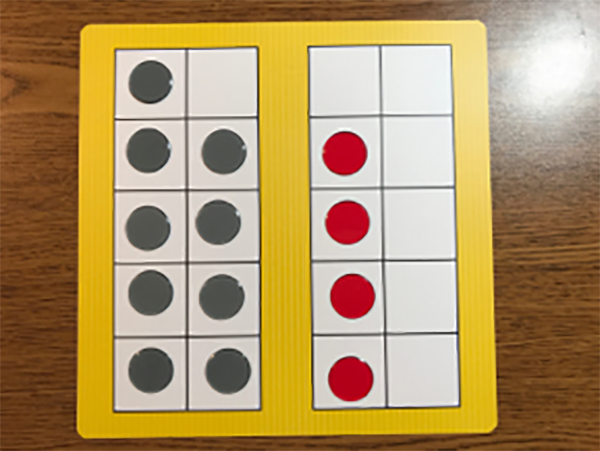
Ask questions such as How many are in each ten-frame? How do you know we have 9 in the left? (It has 1 less than 10. I see a column of 5 and 4 more.)
Then have kids slide one counter from the group of 4 to fill the ten-frame that had 9. Use language that links the first number fact (9 + 4) to the new number fact (10 + 3). “Nine and four is the same amount as ten and three.”
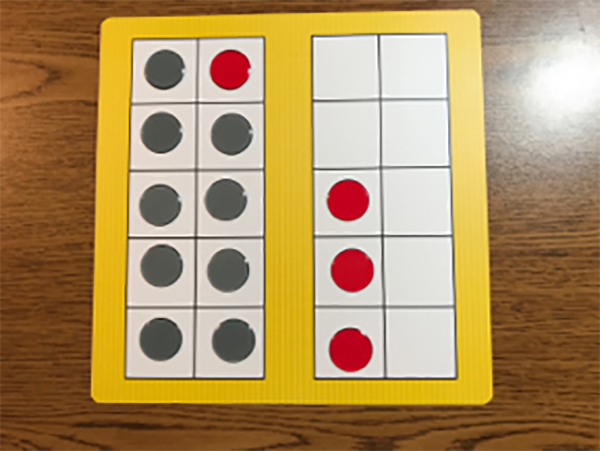
Give students time to use concrete materials to move quantities around and build their mind pictures of how quantities can move from one group to another. You’ll see a difference in their mental math!
Reinforce and Practice the Make-Ten Strategy
Help kids link concrete and symbolic representations of the number facts with an activity or game.
Materials needed
- support sheet/game board (please click the image below to download)
- 2 blank cubes, marked as follows: (Be sure to underline the 9s and 6s!)
Write 9, 9, 8, 8, 7, 7 on one cube
Write 4, 4, 5, 5, 6, 6 on the other.
Activity directions (for one student)
- Get a game board page and a set of cubes.
- Roll the cubes. Find a fact on the board that has the same sum. For example, if you roll 8 and 3, you could choose 10 + 1 on the page. Use a double ten-frame and counters to help if needed.
- Tell why the facts match. For example, “Eight and three is the same amount as ten and one.”
- Record the number fact and the sum on the board.
- Continue until the page is completed. If a space on the game board is already used, roll again.
Game directions (for two students)
- Get a game board and a set of cubes.
- Player 1 uses the first column. Player 2 uses the second column.
- Take turns rolling the cubes and following the game directions above. If the space on the game board you need is already used, lose your turn.
- The first player to complete their column wins.

Extend the Strategy
Encourage students to apply the make-ten strategy to numbers beyond the basic facts. For example, the strategy can be extended to solve 29 + 16. See this ORIGO One video for more.
Teaching the make-ten (or bridge-to-ten) strategy for addition from ORIGO Education on Vimeo.
The Make-Ten strategy for addition is one of many important strategies included in The Box and Book of Facts for Addition and Subtraction from ORIGO Education. Use these strategies to grow the fact fluency and mental computation power of YOUR students!
If you would like to download the game board for the child to use during this activity, please click HERE.
Looking for more addition strategies resources? Check out our doubles facts (doubles strategy) games and activities ideas here.
About ORIGO Education
ORIGO Education is dedicated to making learning meaningful, enjoyable and accessible for all students with Pre-K and Elementary print and digital instructional materials, as well as professional learning for mathematics.
![]()


